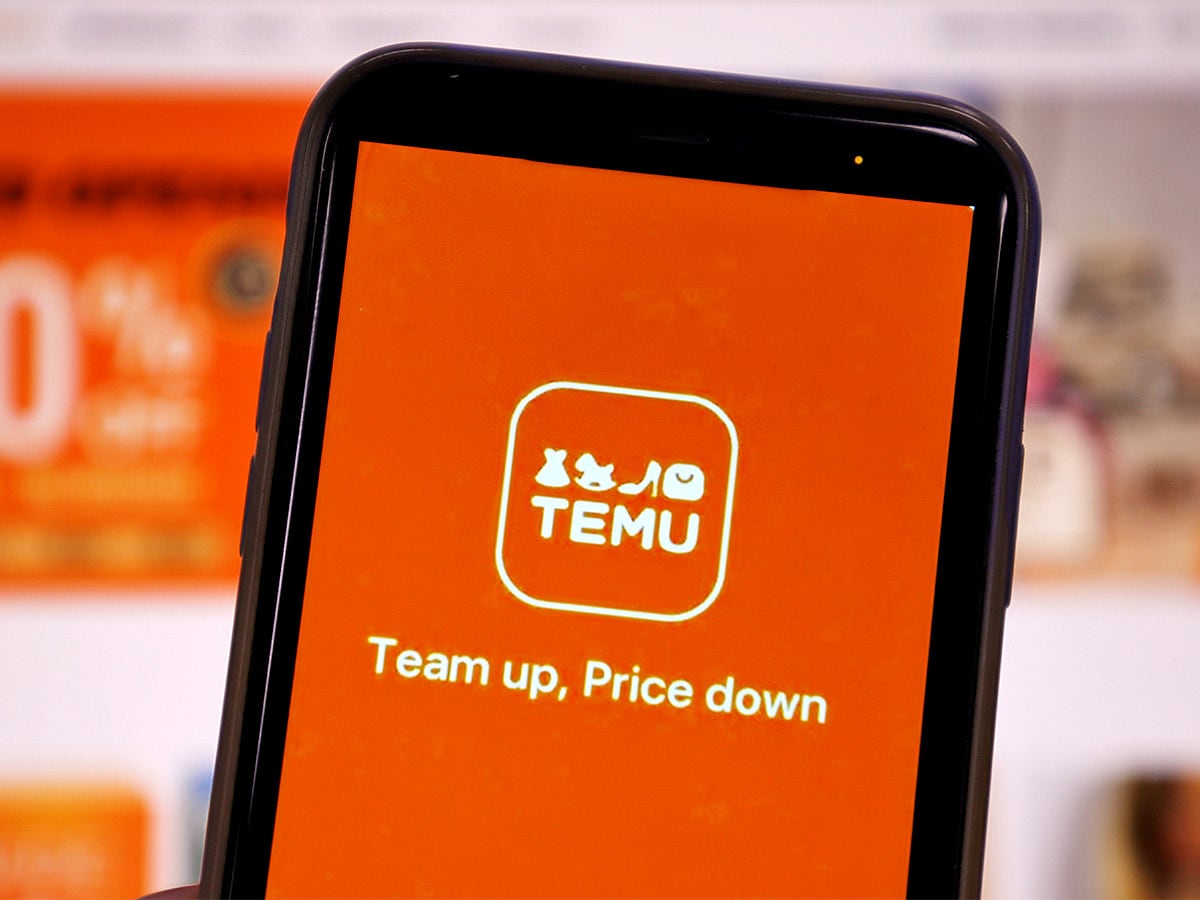PDD’s Temu made a statement of the company’s intentions to crack the North American market earlier in February, when the ecommerce app’s advert featured during the Super Bowl. Temu faces stiff competition within North America, but will hope to undercut established retailers with discount pricing.
- PDD’s Temu makes its first Super Bowl appearance.
- The new app aims to follow in Shein’s footsteps with discount pricing to crack the US market.
- The Global X Emerging Markets Internet & E-commerce ETF up 9% year-to-date.
Temu, an ecommerce app owned by PDD Holdings [PDD] (formerly Pinduoduo), made its first appearance at the Super Bowl, the most-watched TV event in the US, on Sunday 12 February. Two 30-second ads encouraged viewers to “shop like a billionaire”, as the app looks to build on its bridgehead in the North American market.
The following day, PDD said that Temu would start shipping to Canada, having been live in the US since September.
PDD’s investment in the expensive advertising slot demonstrates the company’s determination to crack the US market in the wake of Chinese online fast fashion retailer Shein.
Besides Shein and other examples such as AliExpress (from Alibaba [BABA]) and ByteDance’s TikTok, there are few examples of Chinese-owned apps becoming successes in North America.
PDD’s share price gained 3.9% on 13 February following the Super Bowl, and is up 14.6% year-to-date. This extends a sustained bull streak for the stock, with gains of 66.7% over the past 12 months.
Life in America
PDD’s most recent earnings report covers the quarter ended 30 September, when Temu launched in the US, so it doesn’t include information on Temu’s financial performance so far. However, Chinese news site 36Kr reported that Temu’s average daily gross merchandise value had reached $90m by mid-November.
There are other indications that Temu has made a good start to life in America. Data from Sensor Tower suggests that the app had racked up 20 million global downloads as of January 31, with over 90% of these occurring in North America. Over the past two months, the app has often registered as the most-downloaded free app on the App Store and Google Play.
Competition for market share in the US will be fierce, with Shein and AliExpress already established as overseas incumbents. Amazon [AMZN] holds a dominant spot in the ecommerce market, with 41% of sales, almost ten times that of eBay [EBAY], the next-largest player.
However, PDD has made clear its intentions to invest in expanding into this market. It also announced in September that it was putting 10bn yuan towards helping Chinese companies expand globally, and is directly assisting 100 Chinese brands and 10,000 manufacturers in their international efforts.
Amazon swimming upstream
Despite being the largest ecommerce player in the US, Amazon is not sitting comfortably. The company’s share price has fallen 36.3% in the past 12 months, and in January it announced its largest-ever round of lay-offs in an effort to cut costs.
Temu’s move into the US market will put downward price pressure on Amazon, at a time when the latter is struggling to maintain margins. With prices like $3.59 for a watch or $0.71 for eyeliner, Temu is positioned to undercut its competitors. Heavily discounted goods are partnered with eye-catching giveaways, such as the $10m in online sweepstakes offered to users as part of its Super Bowl ad campaign.
In this regard, Temu will look to follow in Shein’s footsteps. Shein has established itself as the largest fast fashion company in the US, with its market share rising from 12% before the onset of the Covid-19 pandemic to 50% by November 2022.
As long as Temu can establish some sort of toehold, there is plenty of future value in the North American ecommerce market, with a recent report from Straits Research forecasting the market will grow at a CAGR of 7% between 2022 and 2030, ultimately reaching $2.3trn.
Funds in focus: Global X Emerging Markets Internet & E-commerce ETF
Alibaba and JD.com [JD] have also seen bull runs in 2023, although both have tailed off since mid-January. Alibaba’s year-to-date gains amount to 13.5%, while JD.com has fallen 5.5%.
The Global X Emerging Markets Internet & E-commerce ETF [EWEB] offers exposure to both companies as well as PDD, with the latter its top holding as of 17 February, at a weighting of 10.14%. EWEB has gained 9.3% year to date, but struggled last year, with a fall of 16.3% over the past 12 months.
Investors specifically interested in Chinese companies with US listings can select the Invesco Golden Dragon China ETF [PGJ]. PDD is the second-largest holding in the fund as of 17 February, with an 8.12% weighting.
Alibaba is the fund’s top holding and JD.com its third-largest holding, at respective weightings of 8.15% and 6.61%. PGJ is down 10.5% over the past 12 months, but has gained 11.2% year-to-date.
Continue reading for FREE
- Includes free newsletter updates, unsubscribe anytime. Privacy policy





